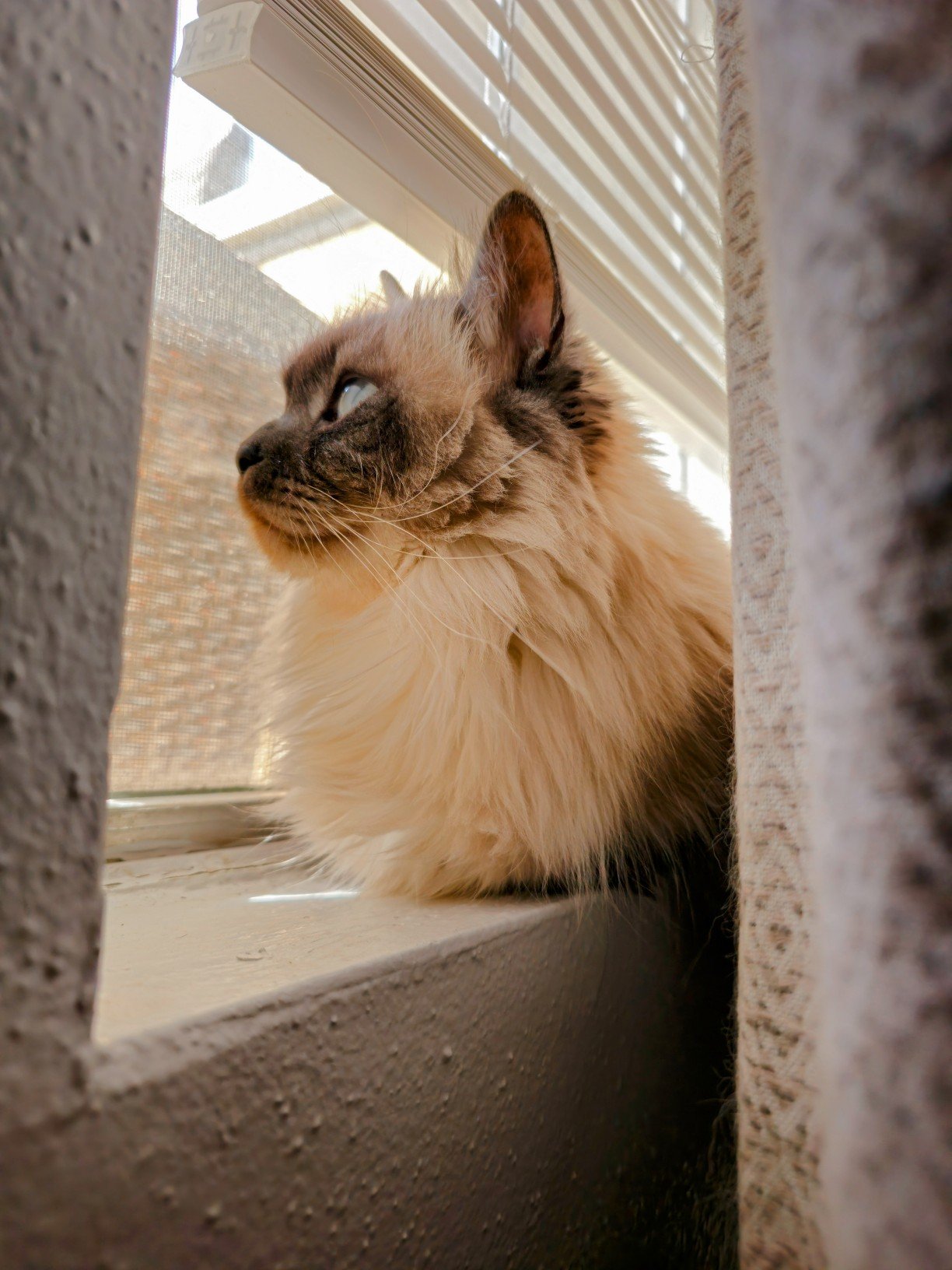I was recently intrigued to learn that only half of the respondents to a survey said that they used disk encryption. Android, iOS, macOS, and Windows have been increasingly using encryption by default. On the other hand, while most Linux installers I’ve encountered include the option to encrypt, it is not selected by default.
Whether it’s a test bench, beater laptop, NAS, or daily driver, I encrypt for peace of mind. Whatever I end up doing on my machines, I can be pretty confident my data won’t end up in the wrong hands if the drive is stolen or lost and can be erased by simply overwriting the LUKS header. Recovering from an unbootable state or copying files out from an encrypted boot drive only takes a couple more commands compared to an unencrypted setup.
But that’s just me and I’m curious to hear what other reasons to encrypt or not to encrypt are out there.
I don’t think I encrypt my drives and the main reason is it’s usually not a one-click process. I’m also not sure of the benefits from a personal perspective. If the government gets my drives I assume they’ll crack it in no time. If a hacker gets into my PC or a virus I’m assuming it will run while the drive is in an unencrypted state anyway. So I’m assuming it really only protects me from an unsophisticated attacker stealing my drive or machine.
Please educate me if I got this wrong.
Edit: Thanks for the counter points. I’ll look into activating encryption on my machines if they don’t already have it.
GNOME disks is a nice GUI that lets you setup disks with ease. Encryption can be easily setup with it.
A big benefit of encryption is that if your stuff is stolen, it adds a lot of time for you to change passwords and invalidate any signed in accounts, email credentials, login sessions, etc.
This is true even if a sophisticated person steals the computer. If you leave it wide open then they can go right in and copy your cookies, logins, and passwords way faster. But if it’s encrypted, they need to plug your drive into their system and try to crack your stuff, which takes decent time to set up. And the cracking itself, even if it takes only hours, would be even more time you can use to secure your online accounts.
On Linux, my installs always had a checkbox plus a password form for the encryption.
I think this is true for computers that are in danger of being stolen. Laptops or PCs in dorms or other shared living spaces. But I live in a relatively secure area, burglaries are very rare and my PC never leaves the building. So the benefits of encryption are pretty much negligible.
What are the downsides to encryption? Though you may have negligible benefits, if there are also negligible downsides then the more secure option should be chosen.
- The LUKS encryption can get corrupted
- The password may be forgotten
- harddrives can be corrupted, too. That’s where backups come in
- True, though one could use a security key or password manager to overcome that, or setup secure boot/TPM to where a password isn’t actually needed. If all else fails, again, backups.
So when the laptop dies, the disk cannot be read anywhere because the tpm is lost?
Correct, the hard disk in the laptop can not be read. This is where having a good backup strategy is important. Similar to how if your hard disk dies you’re no longer able to access the material on the hard disk. For me, the downsides of encryption do not outweigh the benefits of having my data secure.
I enabled full disk encryption during OS installation, set up a secure passphrase, and then set up automated encrypted backups to my home server, which are automatically backed up to a remote server.
I gain peace of mind in knowing that if my laptop is stolen I’m only out the cost of the laptop, the data within is still safe and secure.
It is a one click process if you use user friendly distros
is it’s usually not a one-click process
It is, these days. Ubuntu and Fedora, for example. But you still have to select it or it won’t happen. PopOS, being explicitly designed for laptops, has it by default.
If the government gets my drives I assume they’ll crack it in no time.
Depends on your passphrase. If you follow best practice and go with, say, a 25-character passphrase made up of obscure dictionary words, then no, even a state will not be cracking it quickly at all.
If a hacker gets into my PC or a virus I’m assuming it will run while the drive is in an unencrypted state anyway.
Exactly. This is the weak link of disk encryption. You usually need to turn off the machine, i.e. lose the key from memory, in order to get the full benefits. A couple of consolations: (1) In an emergency, you at least have the option of locking it down; just turn it off - even a hard shutdown will do. (2) As you say, only a sophisticated attacker, like the police, will have the skills to break open your screenlocked machine while avoiding any shutdown or reboot.
Another, less obvious, reason for encrypting: it means you can sell the drive, or laptop, without having to wipe it. Encrypted data is inaccessible, by definition.
Encryption of personal data should be the default everywhere. Period.
Well said. LUKS implements AES-256, which is also entrusted by the U.S. government and various other governments to protect data from state and non-state adversaries.
I don’t https://xkcd.com/538/
I’m convinced the chances of me losing access to the data are higher than encryption protecting it from a bad actor.
Let’s be real, full disk encryption won’t protect a running system and if someone has physical access and really wants it, encryption won’t protect you from the $5 wrench either.
I do encrypt my phone data though, as someone running away with my phone is more realistic.
Who’s gonna come at me with a $5 wrench because they really want my data, though? The attack I’m most likely to experience is someone stealing my laptop while I’m out traveling. That’s what full filesystem encryption solves best.
Or per XKCD, where are they finding a wrench for $5??
I’d imagine you could get a decent bludgeoning wrench for around that at a pawn shop. Doesn’t need to be super functional. A pipe wrench in need of some rehabilitation would work nicely.
Or just a pipe.
For sure, but the cartoon specified a wrench.
This is true, though I figured I’d mention it. ^^
Here’s one for less than 4 USD. I imagine 150 mm in length would be sufficient.
Wow that’s cheap!
Watch out crypt nerds!
Edit: crypto, not crypt! Leaving it 🧟♀️
It’s much worse: They can re-use the same wrench.
(Disgusting, I know… 😝 )
It should be encrypted by default because most people don’t take care to dispose of their machines responsibly. I picked up a few machines destined for ewaste and the hard drives were full of tax returns.
Possibly overestimating the value of the data entrusted to me, but whenever I see that xkcd, I like to think that I at least have the option to remain silent and die with dignity if I really don’t want the contents of my disk out there.
If I remember correctly, some USA agency said torture is ineffective because you will talk, you like it or not. When you are asking someone for a thing they don’t know they will say a lie just to stop the pain. So I guess anyone will give their password with enough time

Tackling the real issues right here!
Nothing I have is worth dying over. I’d give up on the first threat.
Drives in server are not encrypted but backups to the cloud are. Laptop used to but causes to many issues and it doesn’t really leave the house much.
Lol police doesnt just use a hammer
I’m not worried about getting raided by the KGB or anything like that, but break-ins happen and my computer equipment would be a prime target for theft.
I occasionally cycle my backup drives off-site, so I want those encrypted as well.
The cost of encryption is very close to zero, so I don’t even entertain the question of whether I should encrypt or not. I just encrypt by default.
Full disk encryption on everything. My Servers, PCs etc. Gives me peace of mind that my data is safe even when the device is no longer in my control.
No, I don’t encrypt. I am a grown ass man and I rarely take my laptop out of my home. I don’t have any sensitive data on my various machines. I do use secure and encrypted cloud services to store things that I consider a security risk. Everything else is useless to a potential intruder.
I do encrypt my drives, and it’s not as transparent in Linux as it is in the others. I’m sure I could get a TPM setup for seamless boots, but I haven’t done that yet.
For mobile drivers, I still encrypt, but that locks them to one OS since LUKS isn’t cross platform. There is VeraCrypt for cross-platform encryption, but that’s one more thing to manage and install.
Yes. I have sensitive info in my PC (work credentials) and in the case of a break-in, last thing I want is to jeopardize my job.
No. I break my system occasionally and then it’s a hassle.
I don’t have FDE (BitLocker) enabled on my Windows 11 gaming PC. It sits in my house and has nothing on it but video games and video game related shit. I don’t even have my password manager installed for logging in to Steam, GoG or whatever other launcher. I manually type passwords in from the vault on my phone if the app doesn’t support QR code login like discord. Also I paid for this ridiculous m.2 nvme drive, I’m not going to just give up iops bc i want my game install files encrypted.
I don’t use FDE on my NAS. Again it doesn’t leave my house. I probably should I guess, bc there is some stuff on there that would cause me to have industry certs revoked if they leaked, but idk I don’t. Everything irreplaceable is backed up off site, but the down time it would take to rebuild my pirated media libraries from scratch vs just swapping disks and rebuilding has me leery.
I have FDE enabled on both my MacBooks. They leave the house with me, it seems to make sense.
I don’t use FDE on Linux VMs I create on the MacBooks, the disk is already encrypted.
My iphone doesn’t have the option to not use FDE I don’t think.
I use encrypted rsync backups to store NAS stuff in the cloud. I use a PGP key on my yubikey to further encrypt specific files on my MacBooks as required beyond the general FDE.
Almost everything that can be is: laptops, desktop, servers (LUKS), phone (grapheneos)
I encrypt my desktop and laptop but not my servers. On desktop, that excludes drives that aren’t my OS/boot drive.
I don’t even know how to do it
Tick a box when installing some distros. Like OoenSUSE.
Never got it when installing Ubuntu. Any way of enabling it after install?
I dont believe it is possible to do after install
…well, technically, yes.
If you are well-versed in the guts of the distro (grub, /etc/fstab, /etc/crypttab…), and have extra space, you could spend part of your weekend shifting partitions around and moving everything to the encrypted side, and eventually re-configuring your install and removing the old part. (Oh and don’t forget to chown your /home data if you have multiple users.) I’ve been there, it’s not fun. It’s fun[tm]. It’s just far easier and less error prone to re-install if you can.
(Yeah, I’m stretching the definition of “enabling it” reeealy thin here… 🙃 )
I mean yes… but realistically no. Also the risk of data loss at that point is high. you will miss things. the best approach would be to make a proper backup reinstall and put the data back.
the risk of data loss at that point is high. you will miss things
that’s what makes it exciting 😓 😓 😓
My drives are not encrypted because it’s a hassle if things start going wrong. My NAS is software raid so the individual disks mean nothing anyway. The only drive that is encrypted is my backup disk and I’m not really sure if it was needed.
I don’t do it for my desktop because 1) I highly doubt my desktop would get stolen. 2) I installed Linux before I was aware of encryption, and don’t have any desire to do a reinstall on my desktop at this time.
For my laptop, yes, I do (with exception of the boot partition), since it would be trivial to steal and this is a more recent install. I use clevis to auto-unlock the drive by getting keys from the TPM. I need to better protect myself against evil maids, though - luckily according to the Arch Wiki Clevis supports PCR registers.
No need as none of them are networked
Do you physically crush and grind your drives once they are end-of-life?
I usually degauss them
SSDs?
Haven’t had one of those fail yet
For my laptop, yeah. I rarely actually use it though. For my desktop not so much. I really don’t keep that much personal information on it to begin with, and if someone breaks into my house they could probably get more by stealing the desk my computer is sitting on then by stealing the computer. It just feels like a silly thing to waste my time with.














